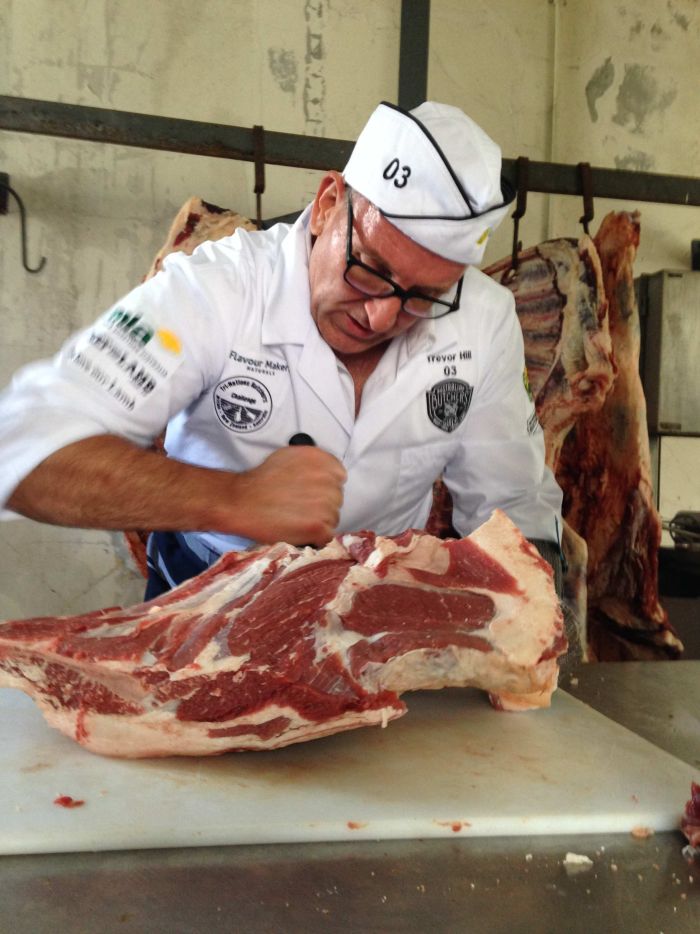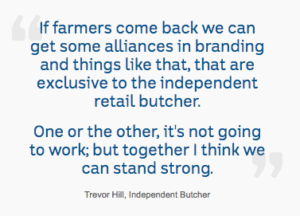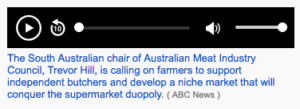ABC.net.au: Independent butchers call for alliance with farmers to challenge supermarket duopoly

Independent butcher Trevor Hill shows a group of beef farmers how he can utilize every part of a carcass.
(Danielle Grindlay)
By Danielle Grindlay | 14 April 2015
Independent butchers are calling on farmers to unite with them and help develop a gourmet niche market that will challenge the supermarket duopoly.
Australian Meat Industry Council representative and Adelaide butcher Trevor Hill said farmers were increasingly embracing the “convenience” of selling direct to supermarkets and accepting lower returns.
He said a butcher-farmer alliance could take control of its own supply chain and attract consumers away from supermarkets.
“If farmers come back, we can get some alliances in branding and things like that, that are exclusive to the independent retail butcher,” he said.
“That’s where we’re going to get mutual support and we’re both going to have a nice secure future.
“One or the other, it’s not going to work; but together I think we can stand strong.”
Mr Hill’s pitch to farmers is that independent butchers can win customers over with better service, a greater range and higher quality cuts of meat.
“When you go into a supermarket today, their meat offering is probably half of what it was seven years ago. They’ve gone very much to staples,” he said.
 “If you want anything outside of what they sell, you have to go to a butcher.
“If you want anything outside of what they sell, you have to go to a butcher.
“And the greatest thing the butcher has is his personality and his reliability to give the customer [honest advice]. They’ll come back because they have that trust in us.”
A recent study showed that 15 per cent of Australian consumers buy their meat from the local butcher, citing “better quality and better range” as the main reasons.
But supermarkets are responding, with localised branding and gourmet cuts of meat now featured on their shelves.
Mr Hill is not concerned about the developments because he sees limitations in supplying consistent quality at reduced prices.
“Typically in a supermarket they would process the meat as fast as they can to get it across the shelf to get a return,” he said.
“The cheaper you are, the faster you need to turn the meat over.
“I have three weeks worth of stock sitting in my fridge that I won’t touch until it’s mature enough to be able to sell.”
A group of beef farmers in south-east South Australia were invited to watch Mr Hill cut up a carcass. He demonstrated how every part of the carcass could be utilized, adding value to a beast that supermarkets did not bother with.
He envisioned “pockets of brands” that promote produce on a regional level, but hoped there would one day be a large network of independent butchers and farmers working together.
“Those brands will need to collaborate together on production,” he said.
“So they’ll have their independent brands, but they’ll have one production facility or method, so you’ve got consistency to deliver across that.”
